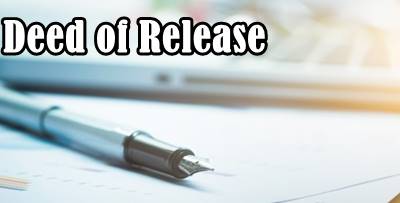Deed of Reconveyance
What is a Deed of Reconveyance?
A deed of reconveyance is issued by the mortgage holder to signify that the borrower is released from his mortgage debt. The deed helps to transfer the property title from the beneficiary to the borrower.

This deed of reconveyance is commonly used when a mortgage is paid completely. It comprises the property’s legal description.
How Does it Work?
Commonly taken care by the title insurance company, a deed of reconveyance gets recorded in the same city where the property is situated. Once the deed gets recorded, any sort of property search will show that the mortgage has been returned completely.
Since a property with a mortgage cannot be sold, recording the deed of reconveyance is an essential part of closing down the home’s sale process.
Importance of Recording a Reconveyance Deed
As mentioned above, recording a reconveyance deed in public records is quite essential. However, in case it gets destroyed or lost, it generates a title issue and a clouded title as there is nothing to prove that the loan has been paid off.
Moreover, there could be several situations when the deed doesn’t get recorded. Either somebody makes a mistake when transferring funds or during the preparation of the deed. Also, there are some other common situations as well, wherein the lender may think that the deed is delivered, but it doesn’t reach the said person.
Link Between Refinancing and Reconveyance
In the current scenario, several reconveyances may occur because the homeowner chose to refinance the pre-existing loan. And, while doing so, he ends up paying off the existing loan. What many people may not realize is that this can commence a reconveyance, which requires to be sent to the new lender.
This adds another problem in the financial journey of the home and can create more issues when the mortgage is returned completely.
Talk to our investment specialist
Risk of Foreclosure
Despite clearing off the mortgage, a homeowner can still be under risk of foreclosure if timely property tax isn’t paid. This process can be commenced with a written notice by the local government, without involving the jurisdiction into this matter.
Since the deed of reconveyance doesn’t impact property taxes, the homeowner can get into trouble.
All efforts have been made to ensure the information provided here is accurate. However, no guarantees are made regarding correctness of data. Please verify with scheme information document before making any investment.






